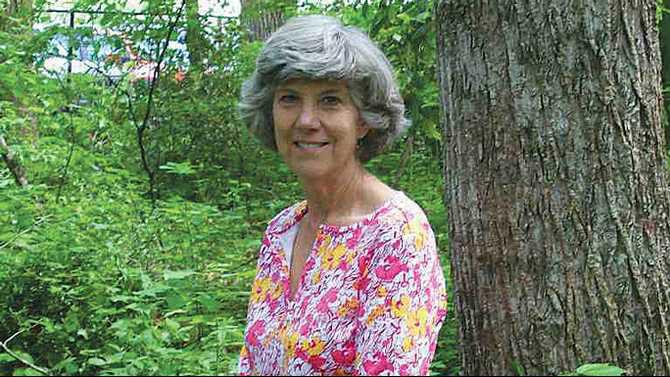OXFORD, Ga. - Theodosia Wade, professor of pedagogy in biology at Oxford College of Emory University, is retiring this summer. She has served for 29 years as a laboratory coordinator and teacher for biology and environmental science.
“I enjoy the people and I love biology,” said Wade. “I have been teaching environmental science. I have found that to be my passion. It really combines my faith, because I feel we are stewards of God’s creation, and my scientific curiosity, because I want to know about every little piece of it. It’s a great combination of inquiry and ethics as well as thinking about the world from the scientific point of view and my faith perspective.”
Wade sees no chasm between science and faith. “Science is about what we can observe, test, investigate, and get data. My faith is about trust as well as things untouchable and unknowable.”
When asked what she considers to be her most significant career achievements, Wade’s immediate answer was “My students, there is so much satisfaction in having mentored and taught students who have gone on to do really great things. For example, one of the students I had became director of sustainability for the City of Atlanta.”
But on reflection, she suggested that “achievements” is the wrong word and that “contributions” would be better, saying. “I have always seen myself as a cog in something bigger, a worker bee.”
She did, however, list a few of the contributions—in addition to her work as a teacher, advisor, and mentor to students—of which she is most proud.
Her work as laboratory coordinator is one of those contributions. That included helping to develop investigative, rather than “cookie-cutter,” laboratory experiences. She refers to this as “a great move by the whole department,” that has significantly enriched the learning experience for all biology students.
Along with several colleagues, she helped drive the development of a culture and practice of sustainability at Oxford College. She mentioned for example that the College now has a carbon action plan and a sustainability mission.
She contributed to the creation of the Oxford Institute for Environmental Education in 1991 and has since helped make it a success. The Institute offers a summer workshop to about 20 K-12 teachers every year. During the workshop, the school teachers develop teaching plans for using their schoolyards for scientific investigation and learning.
She has been productively engaged with her professional organization, the Environmental Education Alliance (EEA) of Georgia, for many years. Her service has notably included serving on its board of directors and several committees. Wade was also instrumental in the development of the EEA’s Advanced Training for Environmental Education program. This is a statewide program by which interested individuals can become certified environmental educators. She has been, and in retirement hopes to continue, to be a teacher in the program.
And finally, the EEA this year recognized Wade’s contributions by awarding her the Dr. Eugene Odum Lifetime Achievement Award. The award was a surprise, but one that has deep meaning for Wade because it speaks to the value her professional peers place on her manifold contributions and because it bears Odum’s name. He was the father of ecology.
Theodosia Wade was born in Boston, Massachusetts, but grew up in Atlanta. Her father was a surgeon and her mother a biochemist who helped set up the Centers for Disease Control and Prevention labs when that institution was founded in Atlanta.
Wade graduated high school from The Lovett School in Atlanta. She holds a bachelors of science degree in biology from Presbyterian College, Clinton, South Carolina and a masters of arts in college teaching zoology from Auburn University.
Wade married William (Billy) Wade the month after she graduated from Presbyterian College. They have been married for 41 years and have three sons as well as four grandchildren. Billy has served as pastor for First Presbyterian Church in Covington since 1987.
The year after moving here Wade was hired at Oxford College. Since then, she has taught one class in biology or environmental science each semester and devoted the rest of her time to preparing and coordinating laboratory materials and experiences in support of teaching and learning within the biology department.
Wade is currently working full steam so as to “finish strong.” That is, to complete her work and leave things in good order for her replacement. But, she is also looking forward to spending more time with her family, continuing to learn about and connect with the natural world, working and volunteering within the community, and otherwise enjoying retirement.





